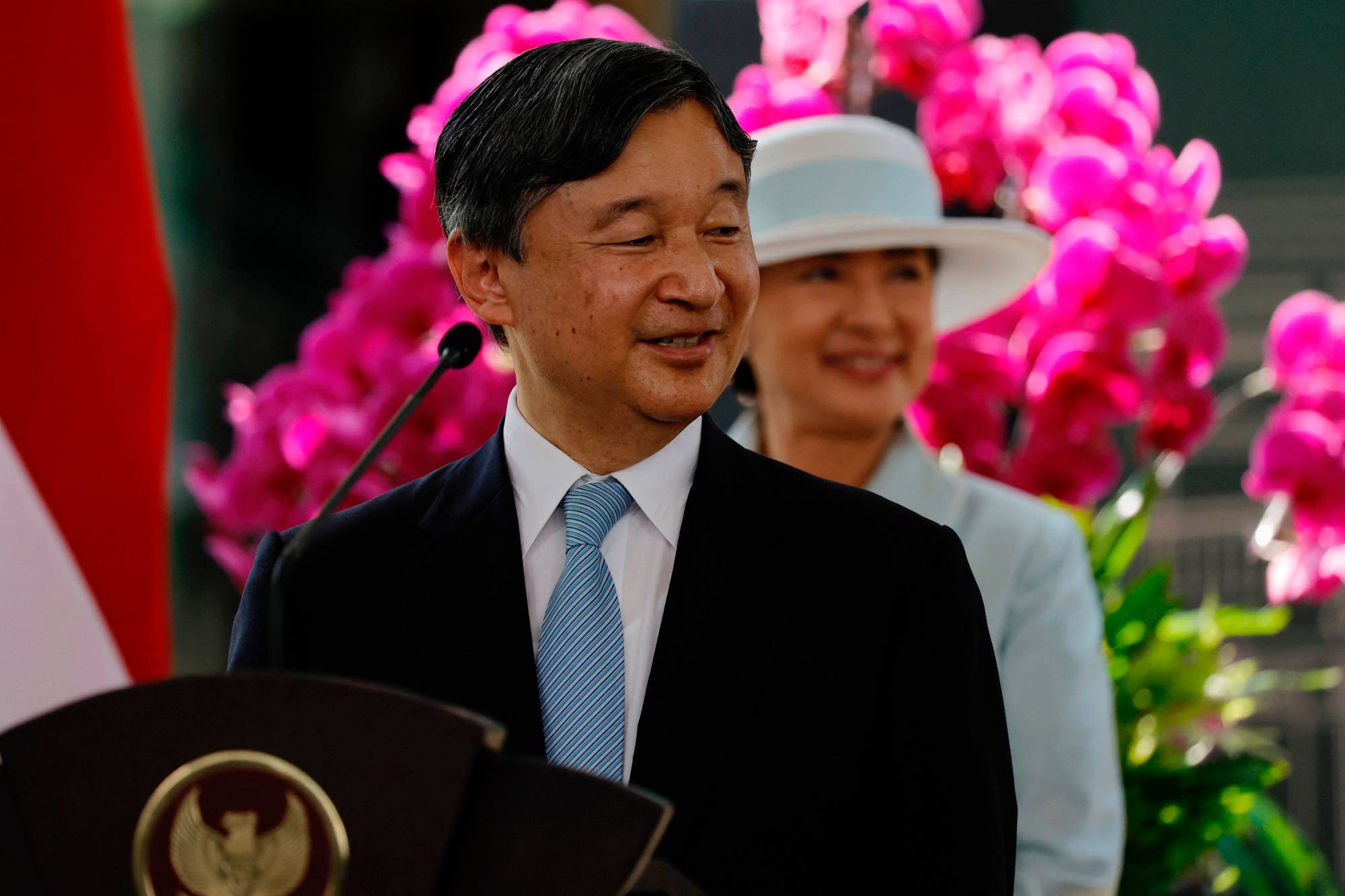Emperor Naruhito and Empress Masako’s weeklong state visit to Indonesia, which came to an end Friday, renewed momentum for overseas travel by the imperial family and marked a positive development in relations between Japan and Southeast Asia's most populous country that could carry more than just symbolic significance.
The first trip to the country for the imperial couple, which came at the invitation of Indonesian President Joko Widodo, was just their second overseas trip since the emperor ascended to the throne and the first time the couple traveled abroad for goodwill purposes since 2002. It provided the emperor with ample opportunities to embrace Indonesian culture and foster exchanges, which he had expressed hope for prior to the couple's departure.
But it also carried a deeper meaning amid a tense security situation in the Indo-Pacific region, and marked an opportunity for him to visit a country where his parents, Emperor Emeritus Akihito and Empress Emerita Michiko, made key visits in the past.

















With your current subscription plan you can comment on stories. However, before writing your first comment, please create a display name in the Profile section of your subscriber account page.